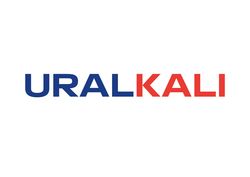Uralkali Announces its Climate Strategy

Uralkali (the Company), one of the world’s largest potash producers, announces that the Company’s Board of Directors has approved its Climate Strategy, containing key goals and actions to reduce GHG emissions until the year 2030.
As part of the exercise, the Company calculated its greenhouse gas emissions (Scopes 1-31) and its products’ carbon footprint. The calculations showed that, given its specific production processes, the potash industry is characterized by a low carbon footprint compared to other types of fertilizers and a range of different extractive industries. The benchmark analysis covering GHG emissions of global potash fertilizer producers showed that Uralkali’s GHG emissions intensity was one of the lowest in the sector.
In line with its Climate Strategy, Uralkali plans to lower GHG emissions intensity (Scopes 1 and 2) by 10% by 2025 and by 20% by 2030. The Company also plans to reach carbon neutrality by 2050.
The strategy outlines seven priority areas aimed at reaching these goals. In the short and medium-term, the Company will direct its efforts at increasing the energy efficiency of its production and infrastructure assets, transitioning to low-carbon fuel types, including moving away from using fuel oil.
Uralkali will pay special attention to its program aimed at developing renewable energy. One of the key indicators specified in the strategy is an increase in the share of green electricity in total energy consumption up to 20% by 2025. In late 2021, the Company undertook a pilot program procuring electricity generated from renewable sources.
Uralkali has planned and already partially launched a range of research and development projects and pilot projects in the following areas: CO2 capture and storage, reduction of fuel consumption, conversion of automotive vehicles to alternative types of energy and forest climate projects.
The preliminary amount of investment required to reach the Company’s climate goals by 2030, is US$ 50-100 million.
Vitaly Lauk, Uralkali CEO, commented:
The Company has previously implemented projects to improve energy efficiency, which helped us gain experience by the time global climate change issues became relevant. For Uralkali, the climate agenda opens up new opportunities related to positioning and promoting its products as fertilizers with a low carbon footprint, increasing the efficiency of production processes and additional opportunities for access to green finance.
Angelina Verba, Uralkali Director of Sustainable Development (ESG) and Investor Relations, commented:
The approval of the Climate Strategy is an important step in the development of the Company. Uralkali is focused on introducing an internal carbon price, working on previously adopted climate projects, researching new technologies and initiatives to deliver key components of the Climate Strategy. Uralkali will continue working with suppliers and other contractors to reduce the carbon footprint throughout the entire supply chain as it will allow the Company to reduce not only direct greenhouse gas emissions and emissions associated with Scope 2, but also Scope 3, which is also important for us.
Uralkali (www.uralkali.com) is one of the world’s largest potash producers and exporters. The Company’s assets consist of 5 mines and 7 ore treatment plants in the towns of Berezniki and Solikamsk (Perm Region, Russia). Uralkali employs more than 12,000 people in the main production unit.
1 Greenhouse gas emissions are categorised into three groups or 'Scopes' – direct emissions (Scope 1), indirect energy emissions (Scope 2), indirect non-energy emissions (Scope 3).
Scope 1 covers direct emissions from owned or controlled sources.
Scope 2 covers indirect emissions from the generation of purchased electricity, steam, heating and cooling consumed by the reporting company.
Scope 3 includes all other indirect emissions that occur in a company’s value chain.


